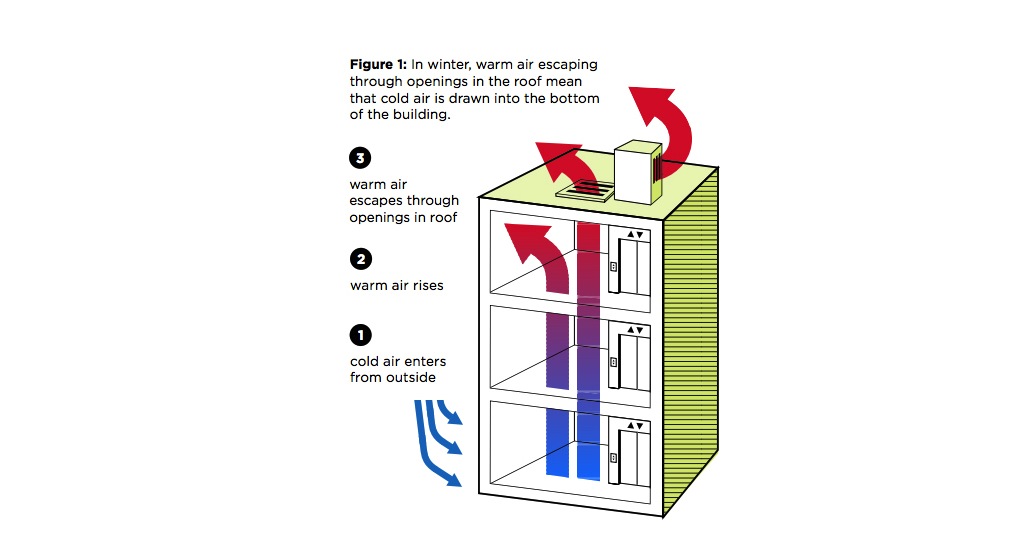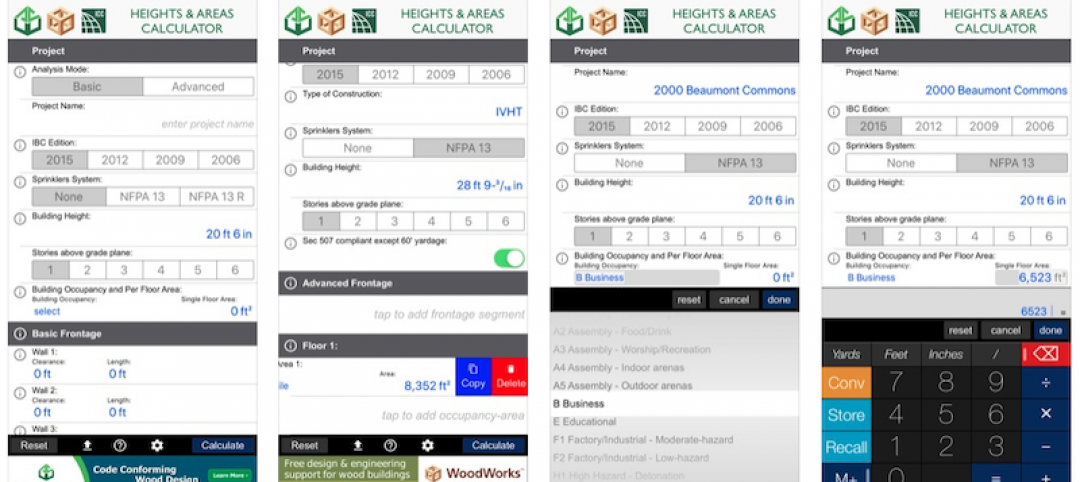New York City should focus on elevator shafts to improve the energy efficiency standards of its high-rise residences, according to a new report from the Urban Green Council.
A typical New York apartment building loses thousands of dollars worth of energy every year from leaky elevator shafts that vent warm air at the top of the building and draw in cold air at the bottom.
The report, “Spending Through the Roof says that apartment building owners pay an average of $3,400 a year to replace heat lost through the roof. In taller buildings, the cost can be more than $20,000 a year.
Plugging this type of air leak can cost from $500 to $15,000. If the leaks were plugged on 4,000 tall apartment buildings in the city, landlords would collectively save $11 million a year, while keeping 30,000 metric tons of greenhouse gases out of the atmosphere.
Elevator shafts and stairwell openings were required to vent smoke in the case of fire. But construction practices and firefighting techniques have changed, so the vents now "are needlessly open all the time."
Codes governing stairwell vents haven't changed since 1929 so there's no legal way now for building owners to fix the problem.
Related Stories
Codes and Standards | Sep 19, 2019
Obama-era Waters of the U.S. rule revoked
New rule expected to define protected waterways more narrowly.
Codes and Standards | Sep 17, 2019
California will enact rent cap bill limiting rent increases to 5% plus inflation
Applies to apartments built at least 15 years ago.
Codes and Standards | Sep 17, 2019
Zero energy buildings can be constructed with no added upfront cost
ROI can be realized in as little as one year.
Codes and Standards | Sep 13, 2019
Researchers use U. of Arkansas buildings as testbed for CLT panels
Investigation could influence future use of the materials.
Codes and Standards | Sep 13, 2019
At least 30 U.S. cities have adopted stricter building energy codes since 2017
Some followed their states in implementing more robust standards.
Codes and Standards | Sep 12, 2019
Illinois law sets maximum retainage on private projects
The change is expected to give contractors bigger checks earlier in project timeline.
Codes and Standards | Sep 10, 2019
Retreat may be the best option for some coastal communities in face of sea level rise
A new study makes the case for relocating in a "strategic, managed" manner.
Codes and Standards | Sep 9, 2019
Free app calculates maximum allowable heights and areas for buildings
A free app that calculates the maximum allowable heights and areas for buildings of various occupancy classifications and types of construction has been released.
Codes and Standards | Sep 6, 2019
Standard for assessing frame deflection using one component polyurethane foams updated
The standard offers guidance when installing fenestration products.
Codes and Standards | Aug 29, 2019
The high cost of gridlock: $166 billion per year
Growing economy means more jobs, more cars, more hours stuck in traffic.

















